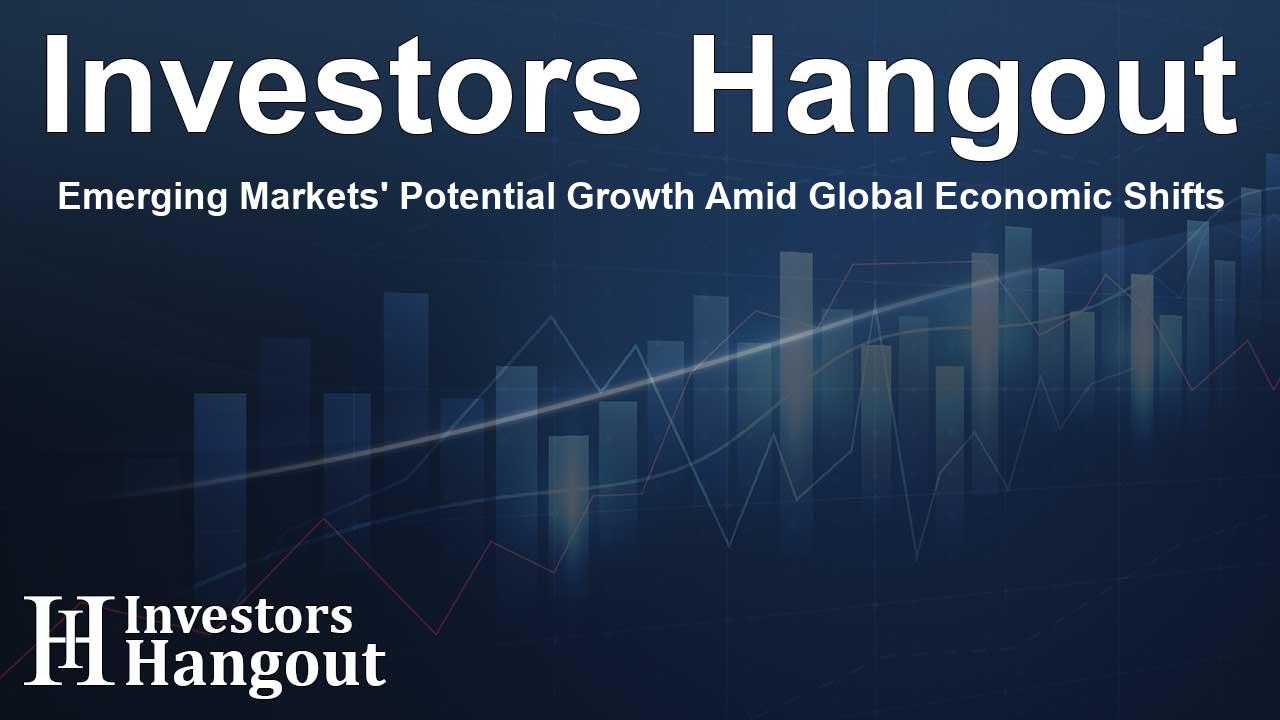Emerging Markets' Potential Growth Amid Global Economic Shifts

Emerging Markets Set to Outperform Developed Economies
The landscape of global equities is shifting, and many experts believe we are witnessing a critical moment for emerging markets (EM) as they prepare to outperform developed markets (DM). While there have been numerous predictions of a resurgence in EM over the past 15 years, this current period offers compelling reasons for optimism.
Valuation Discrepancies Favoring Emerging Markets
One of the most significant indicators pointing towards a potential shift is the valuation difference between EM and DM equities. Currently, emerging markets are trading at a notable discount compared to their developed counterparts. This valuation gap, while historically persistent, suggests there could be an inflection point approaching for EM stocks.
Understanding Allocations in Emerging Markets
Investor allocations to emerging market equities are currently below their historical averages. This underweight reflects a significant gap when compared to the market capitalization weight of emerging markets. As investors rediscover the potential of EM, there’s a strong possibility of increasing allocations to this often-overlooked sector.
Currency Movements and Economic Stimulus
The valuation of the US dollar has reached a peak, suggesting that it may be overvalued. Meanwhile, emerging market currencies exhibit signs of strength, transitioning from a prolonged downtrend. This shift can positively impact EM equity performance through beneficial translation effects arising from foreign exchange movements.
Market Sentiment is Changing
Despite cautious sentiment regarding emerging markets, there are budding signs of a shift in investor perspective. Many remain skeptical; however, this undercurrent of skepticism can signal a ripe opportunity for long-term investment, as optimistic views could potentially emerge from these doubts.
Potential for Economic Growth in Emerging Markets
Central banks in emerging markets have taken proactive measures to stimulate their respective economies. Following a period of stagnation and reform, many of these nations are positioned to capitalize on an anticipated global economic resurgence. The structural changes in these economies could pave the way for robust growth.
Long-term Trends Supporting Emerging Markets
Analysis of long-term trends indicates that emerging markets are currently deviating from their traditional growth trajectory. Observing this significant deviation, along with cyclical trends, lays the groundwork for a possible resurgence in EM performance, with potential upward momentum building.
Reassessing Global Investment Strategies
Given the evolving economic landscape, it is crucial for long-term investors to reassess their global allocation strategies. Increasing emphasis on diversification, particularly into emerging markets, could be advantageous in optimizing portfolio performance.
Allocations and Market Capitalization Insights
Examining the current allocations to dedicated emerging market equity funds reveals a sobering trend: mutual fund investors allocate approximately 3% to EM equities, while ETF investors allocate around 4%. This is notably lower than historical highs and furthermore illustrates the wider context of allocations within global markets.
Emerging Markets' Market Capitalization Weight
The global market capitalization of emerging market equities is hovering around 15%, aligning with the lower end of the historical range for the past 20 years. This underrepresentation compared to the GDP weight of emerging and developing countries underscores the significant disconnect that exists within investor allocations.
As the economic narrative progresses, all it may take is a significant catalyst to inspire a reallocation of investments towards these promising markets. If and when this shift occurs, it could unlock tremendous potential for growth in emerging markets, paralleling historical cycles of performance in global equities.
Frequently Asked Questions
What are the main reasons emerging markets might outperform developed markets?
Valuation discrepancies, investor allocations, and favorable currency movements are pivotal factors suggesting EM could excel compared to DM.
How do current allocations to emerging markets compare to historical trends?
Current allocations to EM are significantly lower than historical averages, indicating substantial room for growth and potential investor repositioning.
Why is currency movement significant for emerging markets?
Strengthening emerging market currencies can enhance equity performance through favorable foreign exchange translation, supporting overall market growth.
What role do central banks play in enhancing EM growth?
Central banks in emerging markets are implementing stimulus measures to invigorate their economies, placing them in a stronger position to benefit from global economic improvements.
How can long-term investors approach the emerging markets opportunity?
Long-term investors should consider increasing their allocations to EM equities, focusing on diversification to capitalize on potential growth in emerging markets.
About The Author
Contact Thomas Cooper privately here. Or send an email with ATTN: Thomas Cooper as the subject to contact@investorshangout.com.
About Investors Hangout
Investors Hangout is a leading online stock forum for financial discussion and learning, offering a wide range of free tools and resources. It draws in traders of all levels, who exchange market knowledge, investigate trading tactics, and keep an eye on industry developments in real time. Featuring financial articles, stock message boards, quotes, charts, company profiles, and live news updates. Through cooperative learning and a wealth of informational resources, it helps users from novices creating their first portfolios to experts honing their techniques. Join Investors Hangout today: https://investorshangout.com/
The content of this article is based on factual, publicly available information and does not represent legal, financial, or investment advice. Investors Hangout does not offer financial advice, and the author is not a licensed financial advisor. Consult a qualified advisor before making any financial or investment decisions based on this article. This article should not be considered advice to purchase, sell, or hold any securities or other investments. If any of the material provided here is inaccurate, please contact us for corrections.
